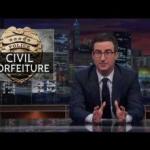OPINION
Per Curiam.
Claimant, Jerzy Flaga, appeals by right a judgment of forfeiture entered against him in this nuisance abatement and forfeiture action. We affirm.
For over a year, the Wayne County Sheriff's Department investigated drag racing in the city of Detroit. An undercover deputy observed at least 20 races during that time period. At these events, hundreds of people would attend and engage in illegal activity. Alcohol was sold by individuals from carts or tents, illegal drugs were consumed, and gunshots were fired, killing a civilian and injuring a sheriff's deputy. Some of these races occurred in or near residential areas. The amount of cars and people prevented fire trucks and ambulances from responding to calls for assistance. The spectators would park in lots owned by local businesses, and the business employees were forced to clean up the debris left by the spectators. The number of spectators was contingent on the location of the race. In one instance, there were only approximately 50 observers, but at another location, 500 spectators loitered in the area of the race. Fatal crashes occurred in the area of the drag races. Undercover officers would record the license plate numbers of vehicles engaged in the drag racing. Marked police vehicles would arrive on the scene, and the crowd would disperse. When the vehicles were leaving, marked police vehicles would pull over the drag racing vehicles under the premise of a traffic stop.
In the present case, claimant's vehicle, driven by his son, participated in drag races as evidenced by videotape from a local news agency investigating the races. Claimant's son was called to testify, but asserted his constitutional rights and did not answer the prosecutor's questions. However, claimant testified that he did not give his son permission to engage in drag racing, but thought his son was using the vehicle to visit claimant's daughter. The court found the activity at issue, drag racing, constituted a nuisance in violation of local ordinance and state statute that must be abated, and the forfeiture was required to abate the nuisance even if from an innocent owner because the statute allowed this seizure and remedy.
Claimant first argues that the trial court abused its discretion by denying his motion for an adjournment because of the lack of prior, proper notice to claimant and his counsel and the unavailability of an essential and necessary trial witness.1 We disagree.
1 An issue is not properly presented for appeal when it is not raised in the statement of questions presented in the brief. MCR 7.212(C)(5); People v Anderson, 284 Mich App 11, 16; 772 NW2d 792 (2009). Although not raised in the statement of questions presented, in the discussion section of this issue, claimant also alleges that the trial court abused its discretion by failing to grant a continuance to allow him to testify with the aid of an interpreter. This issue was not properly presented for appeal. Anderson, 284 Mich App at 16. Moreover, despite being told to indicate if he was unable to understand, claimant answered the majority of the questions posed to him. The record does not support claimant's assertion.
The trial court's ruling regarding a request for a continuance is reviewed for an abuse of discretion. In re Utrera, 281 Mich App 1, 8; 761 NW2d 253 (2008). "A motion for adjournment must be based on good cause, and a court, in its discretion, may grant an adjournment to promote the cause of justice." Soumis v Soumis, 218 Mich App 27, 32; 553 NW2d 619 (1996) (internal citation omitted). When a motion to adjourn is premised on the unavailability of evidence, it must be made as soon as possible after learning the facts. Id. To establish good cause for a continuance or adjournment, a legally sufficient or substantial reason must be shown. Utrera, 281 Mich App at 10-11. Any alleged error must rest on the trial court's actions and not upon any alleged error that the aggrieved party contributed by plan or negligence. Id. at 11-12.
Claimant first argues that he was not given proper notice of the trial date under MCR 2.501, and thus, the trial court should have granted an adjournment. This Court has held that "due process in civil cases requires notice of the nature of proceedings." Vicencio v Ramirez, 211 Mich App 501, 504; 536 NW2d 280 (1995). MCR 2.501(C) requires that:
(C) Notice of Trial. Attorneys and parties must be given 28 days' notice of trial assignments, unless
(1) a rule or statute provides otherwise as to a particular type of action,
(2) the adjournment is of a previously scheduled trial, or
(3) the court otherwise directs for good cause.
It is undisputed that claimant was served with the complaint and trial notice on September 4, 2012, by an officer placing the notice in his mailbox. Given that the trial date was set for October 3, 2012, this date of service sufficiently provided claimant with 28 days' notice. Further, none of the exceptions listed above apply here. Claimant had not retained an attorney at the time the complaint was served, and thus, the complaint and trial notice was served on him. He had 28 days to retain counsel and his failure to do so until the Friday before trial was not a sufficient basis for the trial court to grant an adjournment. Moreover, the trial court noted that counsel could have filed a motion to adjourn the trial, but rather, waited until the date of trial to make the request. Indeed, counsel filed an answer to the forfeiture request two days before trial, but failed to file a motion to adjourn. In light of the above, the trial court did not abuse its discretion by denying claimant's motion. Utrera, 281 Mich App at 8.
Claimant also argues that the trial court abused its discretion by not granting an adjournment to enable him to present his daughter as a witness. However, this Court has held that a court has discretion over witnesses and can exercise "reasonable control" over the presentation of witnesses and evidence, in pertinent part, to "(2) avoid needless consumption of time . . . ." MRE 611(a); Linsell v Applied Handling, Inc, 266 Mich App 1, 23; 697 NW2d 913 (2005). Claimant himself admits that his daughter's testimony would have been used to "support and corroborate" claimant's testimony regarding where his daughter lived, her vicinity to the city, and whether claimant permitted his son to use the vehicle to visit her. Her testimony would have been cumulative to claimant's testimony because he was able to testify regarding where she lived and whether he gave his son permission to use the vehicle. Thus, the trial court properly held that she was not a necessary witness. In so holding, the trial court did not abuse its discretion by denying the request for a continuance on this ground. Utrera, 281 Mich App at 8.
Next, claimant argues that his due process rights were violated when he was not permitted to present an innocent owner defense to the forfeiture because the defense was not explicitly prohibited. We disagree.
"A trial court's decision in a forfeiture proceeding will not be overturned unless it is clearly erroneous." In re Forfeiture of $180,975, 478 Mich 444, 450; 734 NW2d 489 (2007). "A finding is clearly erroneous where, although there is evidence to support it, the reviewing court is firmly convinced that a mistake has been made." Id. "In applying the clearly erroneous standard, regard is given to the special opportunity of the trial court to judge the credibility of the witnesses who appeared before it." In re Forfeiture of $19,250, 209 Mich App 20, 29; 530 NW2d 759 (1995). "In Michigan, forfeiture proceedings are in rem civil proceedings and the government has the burden of proving its case by a preponderance of the evidence." People v Everard, 225 Mich App 455, 465-466; 571 NW2d 536 (1997). As a general rule, civil forfeitures do not qualify as punishment for purposes of double jeopardy. Id. "The civil in rem forfeiture proceeding is a legal anomaly that proceeds on an archaic theory that inanimate objects themselves can be guilty of wrongdoing." In re Forfeiture of $30,632.41, 184 Mich App 677, 678-679; 459 NW2d 99 (1990). The intent in civil forfeiture is to remove from circulation the offending item. In re Forfeiture of $180,975, 478 Mich at 455. Unless otherwise specified in the statute, there is no inquiry into the guilt or innocence of the owner or possessor of the item subject to forfeiture. Id. In the context of a forfeiture premised on nuisance abatement, forfeiture of the item is appropriate even when the joint owner of the property was innocent. Id.
The interpretation and application of a statute presents a question of law that the appellate court reviews de novo. People v Zajaczkowski, 493 Mich 6, 12; 825 NW2d 554 (2012). The intent of the Legislature is expressed in the statute's plain language. People v Cole, 491 Mich 325, 330; 817 NW2d 497 (2012). Language included in one section of a statute, but omitted in another section is presumed intentional. People v Peltola, 489 Mich 174, 185; 803 NW2d 140 (2011). The doctrine of "expression unuis est esclusio alterius" means that the express mention in a statute of one thing suggests the exclusion of other similar things. Bloomfield Twp v Kane, 302 Mich App 170, 184; 839 NW2d 505 (2013).
MCL 600.3801 et seq governs nuisances and abatement. The plain language of MCL 600.3815(2) expressly provides that knowledge of the existence of a vehicle as a nuisance is not a requirement. ("Proof of knowledge of the existence of the nuisance on the part of the defendants or any of them, is not required.") Despite this plain, express statutory language, Cole, 491 Mich at 330, claimant alleges that due process provides for the presentation of an innocent owner defense. However, an innocent owner defense for purposes of nuisance abatement was rejected in People ex rel Wayne Co Prosecutor v Bennis, 447 Mich 719, 737-738; 527 NW2d 483 (1994), aff'd Bennis v Michigan, 516 U.S. 442; 116 S Ct 994; 134 L Ed 2d 68 (1996). Claimant's attempt to distinguish this authority is unavailing.2
2 Claimant cites authority for the innocent owner defense, but fails to acknowledge that there are express statutory provisions, such as MCL 333.7521(1)(f), that provide for the innocent owner defense that is notably absent from the statute at issue.
Affirmed.
/s/ Michael J. Kelly
/s/ Mark J. Cavanagh
/s/ Karen M. Fort Hood





